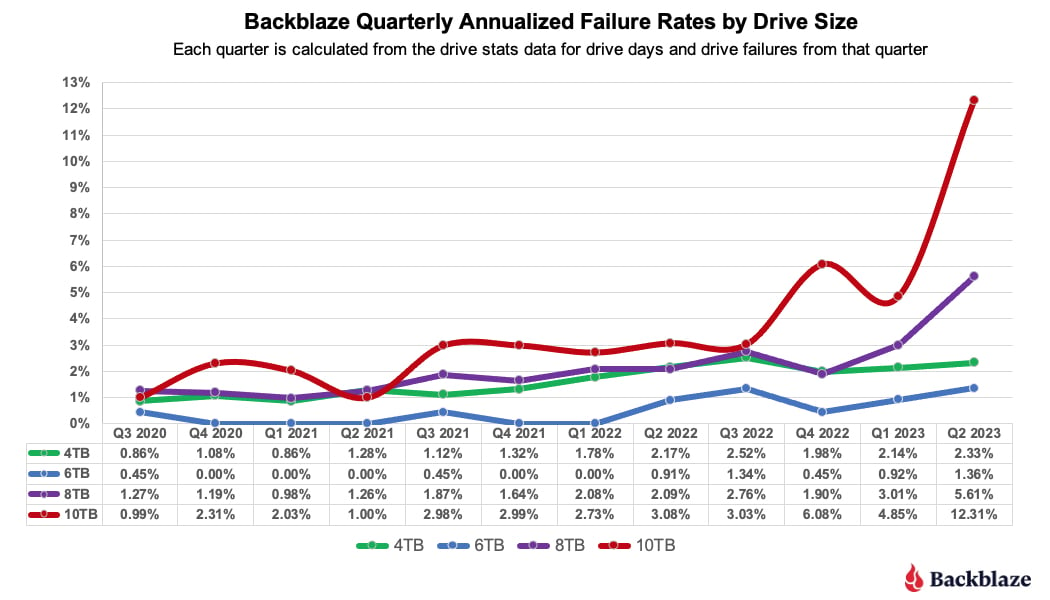datahoarder
Who are we?
We are digital librarians. Among us are represented the various reasons to keep data -- legal requirements, competitive requirements, uncertainty of permanence of cloud services, distaste for transmitting your data externally (e.g. government or corporate espionage), cultural and familial archivists, internet collapse preppers, and people who do it themselves so they're sure it's done right. Everyone has their reasons for curating the data they have decided to keep (either forever or For A Damn Long Time). Along the way we have sought out like-minded individuals to exchange strategies, war stories, and cautionary tales of failures.
We are one. We are legion. And we're trying really hard not to forget.
-- 5-4-3-2-1-bang from this thread
view the rest of the comments
Generally the more layers you add to an SSD the less robust it is. If this is real your data will be corrupt within a week.
I mean you can say the same for spinning magnetic platters. "The more bits you're trying to squeeze into a fixed size HDD the less robust it is."
I'm not saying these guys can do it, but dismissing higher densities of storage out of hand seems a bit glib considering the last 60 years of progress and innovation.
They're a flat-storager.
That's never really been an issue with HDDs as far as I'm aware, although 10k rpm drives were known to be more fragile IIRC. The lower life and robustness of QLC vs SLC flash is well known.
Because drives use ECC and spare sectors to give the illusion of reliability just like QLC.
Here is reliability vs drive size.
Decades ago, a collegue of mine (who once worked in hard drive design) said, “Oh, hard drives stopped reading 1’s and 0’s years ago. Now they compute the probability that the data just read was a 1 or a 0.”
That is exactly what ppl like you said when SLC came out and TLC came out and QLC came out...
Look back now.
And they use far more energy. Meanwhile spinning disks can sit idle with all of my hoarded data.
Google says hdd idle is higher than SSD. Ssd is higher under load but it's important to look at total energy used. If the SSD spikes high, but is 10x faster, the total energy used will be less.
The Seagate Exos in my aray consume 8-9W each on idle, and 12-13W active. I doubt that a NVME would consume that much in idle, which will be most of the time for data storage.
AFAIK power consumption increases with size on SSDs. And that's not the case with spinning disks. That's what I tried to point out, from the perspective of hoarding data (idle disks) bigger sizes are not something to be pursued. Then of course there's the use case of needing a high volume fast storage (e.g. zfs cache), for which use case these are great!